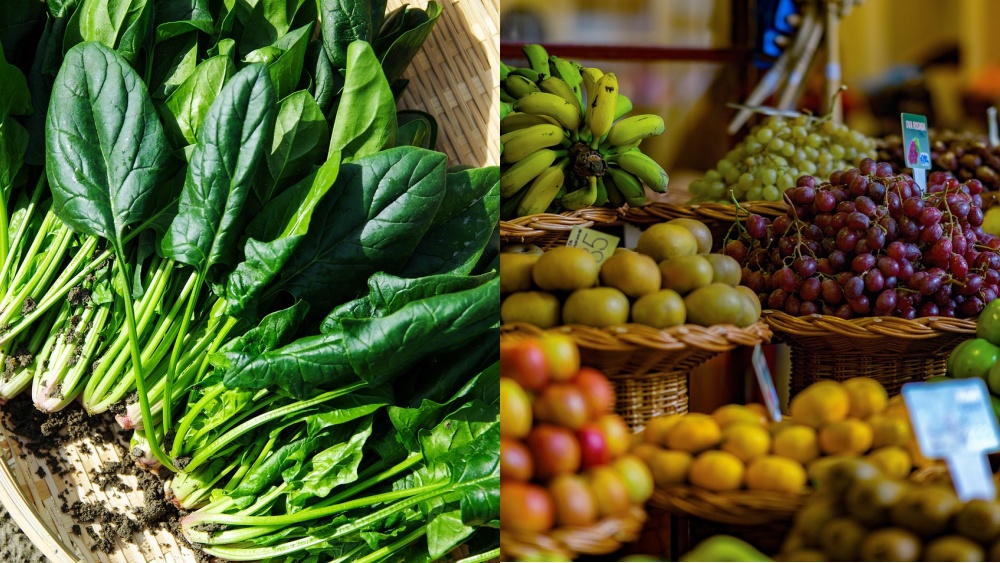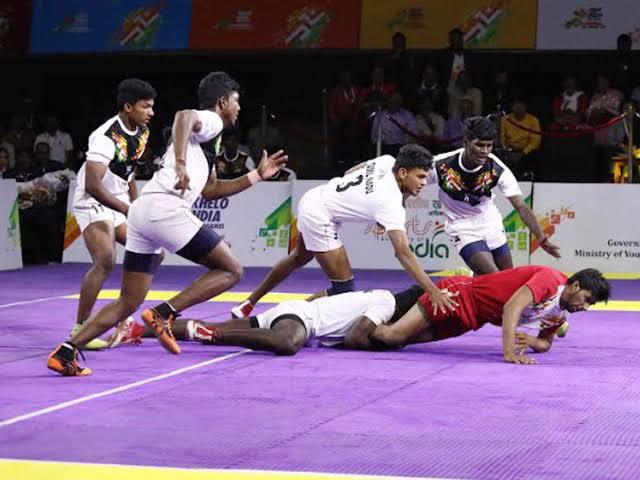
Many articles on nutrition often put more focus on macronutrients (carbohydrates, proteins, and healthy fats), but the micronutrients (vitamins and minerals) you consume are just as essential, especially if you engage in athletic endeavors like martial arts training.
Micronutrients help your body to function optimally, powering countless bodily processes. Balanced diets often contain enough micronutrients for the average person, but athletes sometimes need supplements because of how hard they push their bodies and how restrictive their diets can be.
The Key Vitamins And Nutrients Your Body Needs To Be Healthy
Vitamins are found in many foods, like fruits and vegetables. However, people engaged in physically intense activities like martial arts training often put additional demands on their bodies, increasing their micronutrient needs.
Everyone’s vitamin and mineral needs vary based on factors like lifestyle, current health status, and diet. Some of the crucial micronutrients your body needs to perform optimally include:
1) Vitamin A
Vitamin A plays many roles, including improved immune function, bone health, and eye health. Not getting enough vitamin A can lead to various tissue and skin conditions and night blindness.
Green leafy vegetables, fish, dairy, and eggs are excellent sources of vitamin A, so make sure you add lots of these to your diet. Many multivitamin supplements contain adequate quantities of vitamin A to ensure you get enough.
2) B Vitamins
The B vitamin group includes many micronutrients your body needs, like riboflavin, thiamin, pantothenic acids, niacin, biotin, pyridoxine, cobalamin, and folate.
These vitamins are used by your body to process the carbohydrates you consume and convert them into energy. B vitamins like thiamin also play a critical role in breaking down amino acids.
They are abundant in many vegetables, fruits, and meats. For instance, vitamin B12 (cobalamin) is primarily found in meat, making it trickier for vegans and others who don’t consume meat to get enough of it through their diet.
3) Vitamin C
Also called ascorbic acids, vitamin C can be found in many fruits like lemons, strawberries, and oranges. It’s also abundant in vegetables like sweet potatoes and broccoli. Athletes require more vitamin C since they constantly push their bodies.
Vitamin C helps to neutralize free radicals in the body, strengthening your immune system and reducing your risk of infections like colds. Research shows that vitamin C can help to increase endurance and coordination while reducing fatigue.
4) Vitamin D
Vitamin D helps your body to absorb calcium and plays a crucial role in muscle and bone health. Not getting enough vitamin D can make your bones brittle and cause various health and skin issues.
Vitamin D is created by your body when it’s exposed to sunlight, and it can also be found in foods like fish, milk, cheese, and eggs.
However, people who live in colder climates with little sunshine or spend most of their time indoors during the day might need vitamin D supplements to keep their bodies healthy. Many multivitamins contain more than the daily recommended amount of vitamin D.
5) Vitamin E
Vitamin E has antioxidant properties that help repair and regrow cells, which are crucial for muscle function and growth. Any athlete looking to grow bigger, stronger muscles should ensure they get sufficient amounts of vitamin E from their diet. Vitamin E can be found in poultry, eggs, cereals, vegetables, fruits, seeds, and nuts.
Vitamin E is fat-soluble and helps ensure the proper function of many organs in the body. Vitamin E deficiencies are rare since it can be found in many foods.
6) Vitamin K
Vitamin K is a micronutrient that helps with blood cutting, helping to prevent unnecessary blood loss when you’re cut. The best sources of vitamin K are typically green leafy vegetables like kale.
7) Iron
An iron deficiency can lead to a health condition called anemia, which leads to people experiencing symptoms like lightheadedness and fatigue, resulting in reduced athletic performance. Exercise is also known to decrease iron in the body and slow its absorption. Iron can be found in many foods, including red meat, beans, and leafy vegetables.
Vegan people sometimes struggle to get enough iron from their diets since they don’t consume any meat. However, too much iron in your body isn’t good for you either since it can lead to health issues like liver failure. Fortunately, blood tests can be used to analyze how much iron you have in your diet, so appropriate supplements can be recommended when needed.
8) Calcium
Calcium is an essential mineral that helps to power various bodily functions, like bone health, muscle function, blood clotting, and nerve transmissions. Calcium is the primary substance that makes up your bones and teeth, giving them strength and structure. Most of the calcium in your body is stored in your bones and teeth.
Calcium also helps to power muscle contraction. It reacts with proteins to allow your muscles to function properly. Calcium is involved in the production of many essential hormones. It can be found in dairy products, green leafy vegetables, fish, fortified cereals, and nuts.
9) Potassium
Potassium is one of the most essential micronutrients for athletes, given its vital role in keeping the body healthy. Potassium helps with muscle function, heart rate, blood pressure, and electrolyte balance. It also helps to ensure the proper function of nerves. This mineral is also known to help athletes maintain their energy levels during strenuous activity. Potassium can be found in many fruits like bananas, raisins, apricots, and oranges.
10) Magnesium
Magnesium is recognized for its key role in overall health and athletic performance. It helps to increase energy levels, improves muscle performance, and reduces fatigue. Magnesium improves energy levels by increasing adenosine triphosphate availability, energy stored inside your cells.
Magnesium-rich foods include almonds, cashews, peanuts, avocados, quinoa, and whole wheat. Make sure you have lots of these foods in your diet to ensure you’re getting enough magnesium.
Micronutrients Keep Your Body Healthy And Improve Its Performance
Vitamins and minerals allow your body to function at its best, and the best approach is to get them from your diet. However, martial artists and other athletes put additional demands on their bodies, increasing their nutritional needs. Consider supplementation if you think you’re not getting enough micronutrients from your diet.
You may also like:
9 Foods To Avoid For Peak Performance And Why
Physical training, mental preparation, and proper nutrition are essential for peak performance. While certain foods can help boost athletic performance, others can significantly hinder it. Nine Foods That Diminish Athletic Performance This article will…
Protein powders and pre-workouts are two of the most popular supplements in the fitness community. While these two supplements often share some ingredients, they serve two distinct purposes. Pre-workout products are developed to optimize your…
Ready to get serious about your diet and working out for a healthier lifestyle? You’re in luck. This article will explore calorie and sugar-free foods that will help you ensure you reach a caloric deficit…
In the heart of Southeast Asia, Singapore is renowned for its diverse culinary landscape. As an island nation that treasures food, it’s evolved to cater to a multitude of dietary preferences. For martial artists training…
Nutrient timing is a science field that strategically schedules when and what to eat during various periods throughout the day to optimize athletic performance when working out, speed up recovery, and optimize general health. Nutrition…
When working out, lasting weight loss often involves reworking the body’s physiology and metabolic processes. Successful weight loss happens when the body strikes a healthy balance between what it stores and burns. An active lifestyle…
Speed is an important aspect of any sport. Being able to move faster than your opposition can react is a surefire key to victory whether you’re playing non-contact sports such as football or tennis, but…
Brazilian Jiu-Jitsu is an ever-evolving martial art with diverse techniques designed to give a strategic advantage in sparring and competition. Among these techniques, the tripod pass is a move that’s getting a lot of traction…
With Omar “Reug Reug” Kane’s emergence onto the world stage in Mixed Martial Arts, fight fans can’t help but wonder about the heavyweight star’s origins. He may be another colossal fighting figure that keeps the…
Brazilian Jiu-Jitsu is one of the most rewarding martial arts you can learn and it’s one of the newest. It is widely viewed as the best martial art for one-on-one combat against untrained opponents with…
In recent years, alcohol-free drinks have gained popularity, especially among the health-conscious and workout enthusiasts seeking a safer socializing alternative. With the growing wellness movement and the trend of mindful drinking, many are questioning: are…
The question of which approach to sparring is better is often asked in martial arts spaces like Muay Thai, Boxing, or other combat sports. The answer lies right in the middle since each approach to…

































